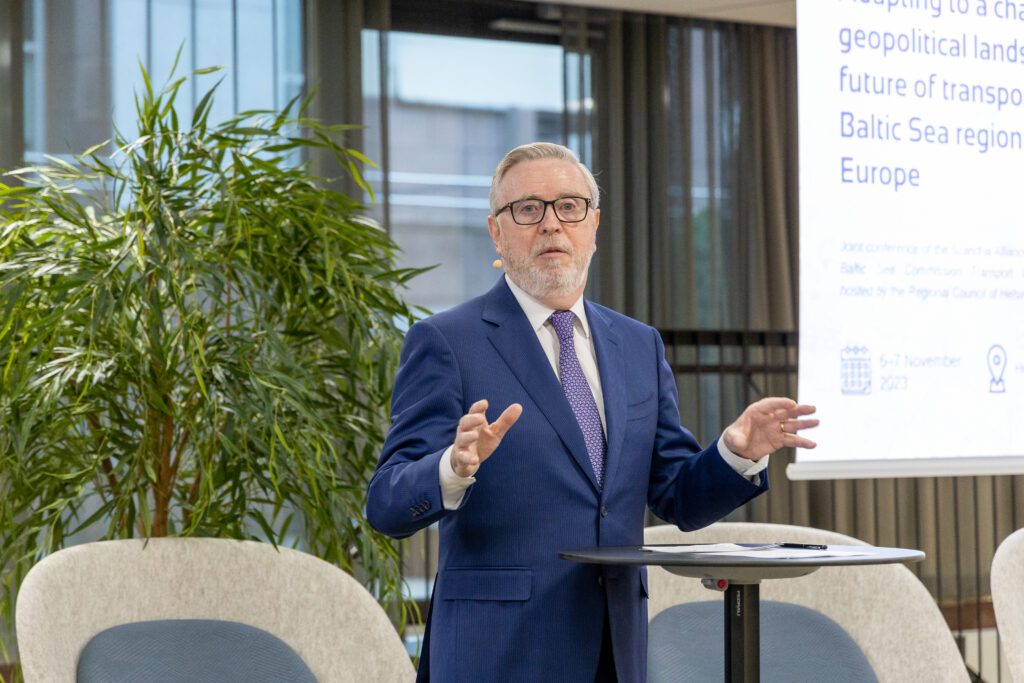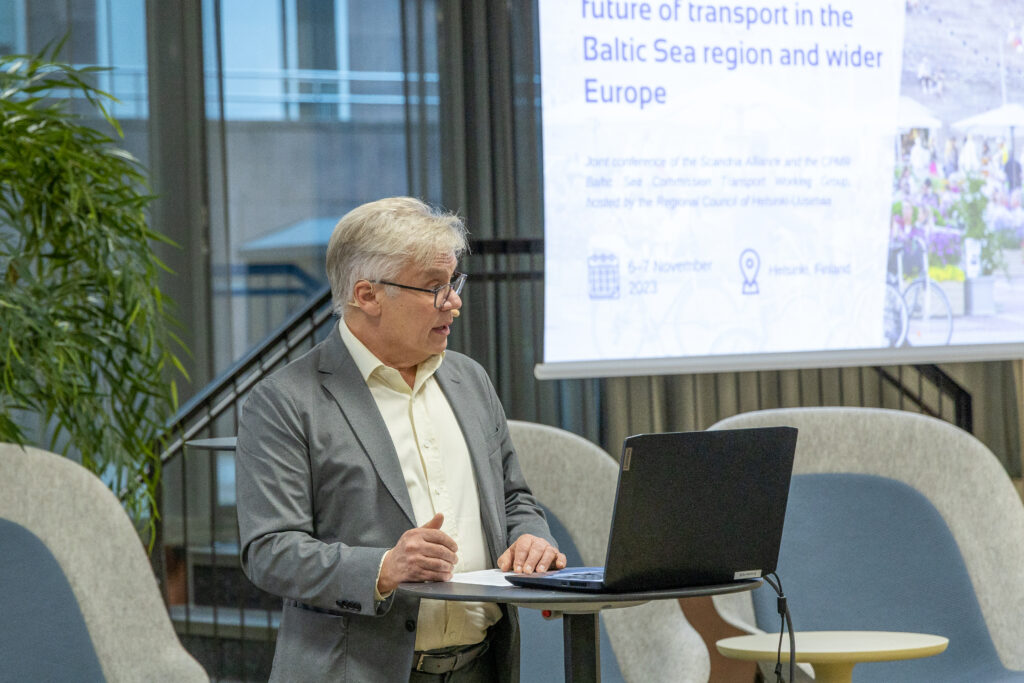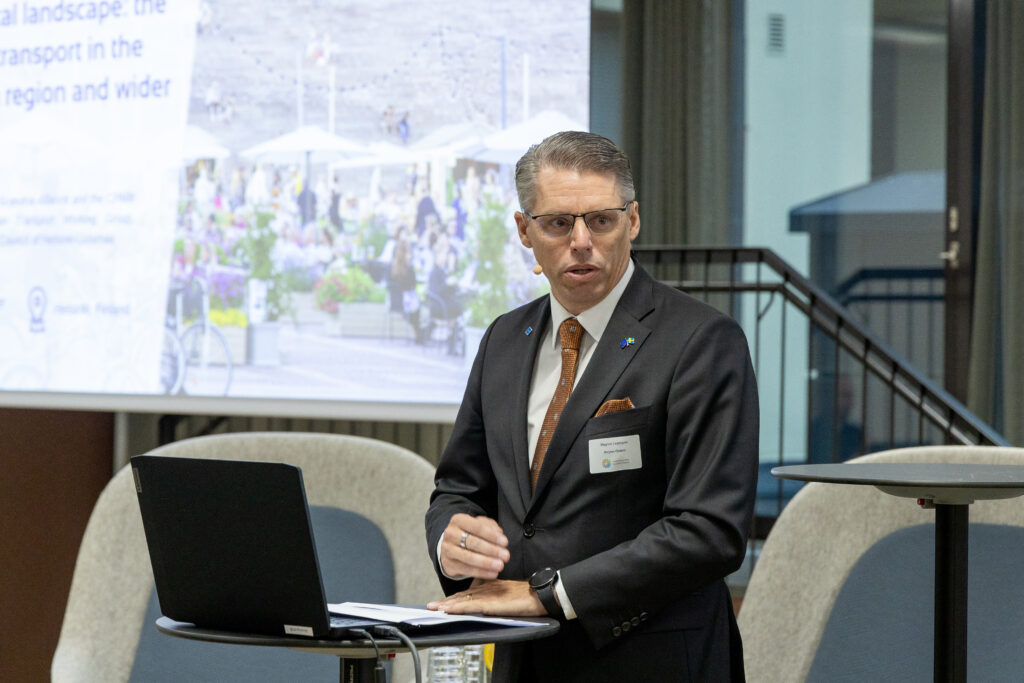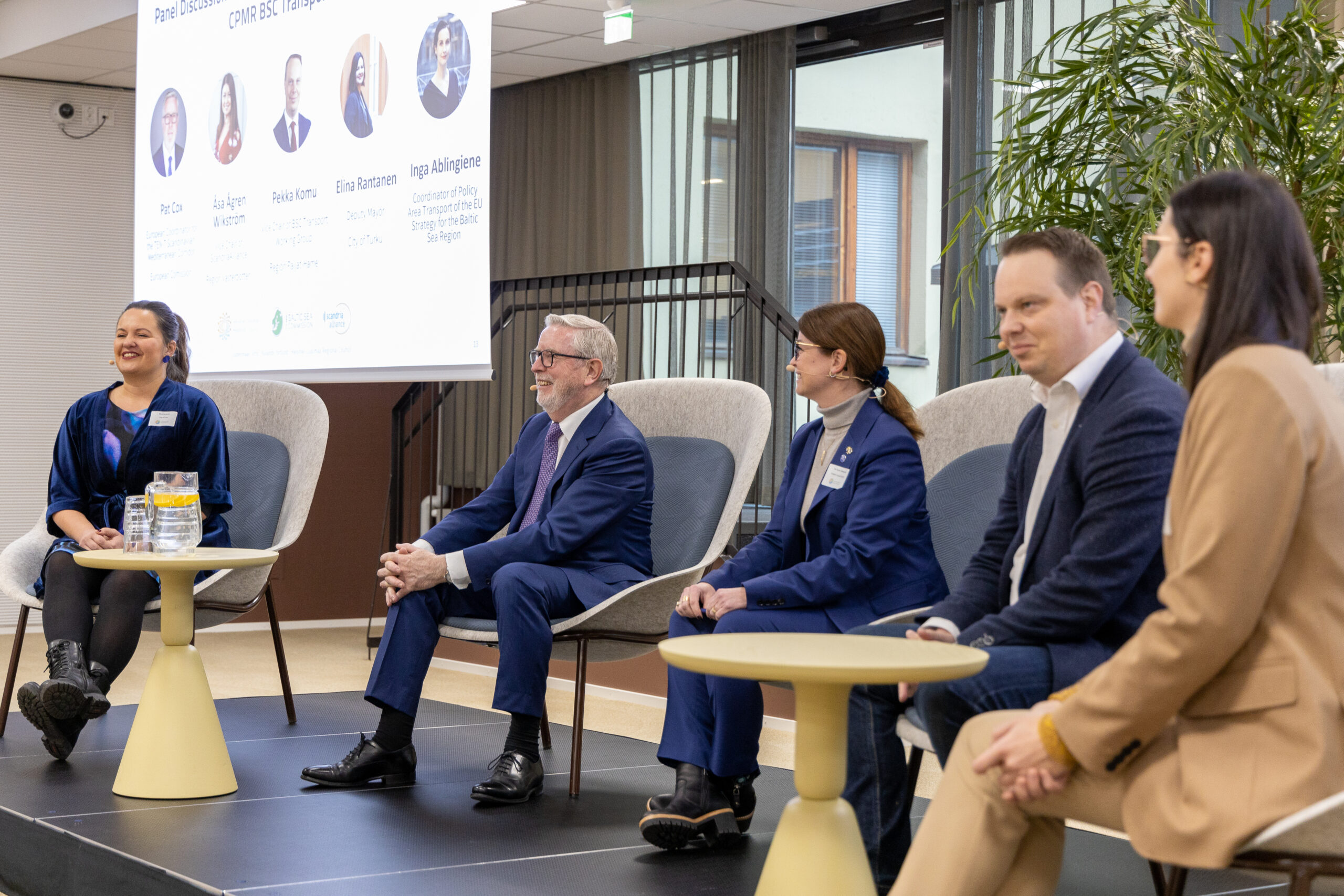Scandria Alliance and the CPMR Baltic Sea Commission call for strengthening resilience of the transport system in light of a new geopolitical context.
At the invitation of the regional Council of Helsinki-Uusimaa, local and regional representatives of the Scandria Alliance and the CPMR Baltic Sea Commission, together with EU and national representatives, met in Helsinki on 6-7 November to discuss the implications of the new geopolitical context on transport and infrastructures in the Baltic Sea Region and wider Europe. The event was marked by the adoption of a joint resolution calling for EU and national support to improve cross-border connections and strengthening the resilience of the transport and logistics chains in the Baltic Sea Region and wider Europe.

Participants agreed on the importance of accelerating the decarbonisation of the transport sector, in line with EU climate objectives and the Green Deal, in order to mitigate climate change and at the same time to ensure that transport infrastructure is adapted and resilient. The European Coordinator of the Scandinavian-Mediterranean (ScanMed) TEN-T Core Network Corridor Pat Cox reflected on the importance of the corridor in a changed environment. He stressed the growing strategic importance of the ScanMed corridor and its northern dimension, in particular. The Finnish and the forthcoming Swedish NATO memberships as well as the abundance of rare earth materials and biomass are two examples that underline this growing importance.

Juha Eskelinen, Deputy Regional Mayor of Helsinki-Uusimaa Region: “The strategic importance of the Scandinavian-Mediterranean and North Sea Baltic corridors is growing, as well as the importance of the connections between the corridors. This is crucial for fostering the security of supply and passenger transport to all regions along the corridors. At the same time, we have to meet the growing military and cross-border transport needs in the new geopolitical reality and ensure that there will not be any bottlenecks between the Baltic Sea Region and continental Europe.”
Guido Beermann, Minister of Infrastructure and Federal State Planning of Land Brandenburg and Chair of the Scandria Alliance: “Our European transport system is challenged in many ways – be it by the consequences of climate change or the geopolitical turbulence we are experiencing.
We need to make sure that our infrastructure is resilient to these multiple crises. This requires integrated and holistic approaches to transport planning, but also adequate funding. The members of the Scandria Alliance therefor call on all actors to work vigorously towards a strong Connecting Europe Facility in the new multiannual financial framework to achieve the objectives of a greener, more efficient and more resilient transport network as proposed by the European Commission in the TEN-T revision process.”

Magnus Lagergren, Chair of CPMR BSC Transport Working Group (Region Örebro County, Sweden): “Involving cities and regions in the design, governance and implementation of the future generation of European transport policies is crucial. The CPMR Baltic Sea Commission and Scandria Alliance have taken an active part in the revision process of the TEN-T regulation. We welcome the inclusion by the EU co-legislators of important connections, such as Oslo-Stockholm in the ScanMed Corridor, however there are still some important functionally urban nodes, terminals and ports still missing in the TEN-T network”.
Background
About the Scandria Alliance
The Scandria®Alliance is an arena for collaboration of cities and regions between Scandinavia and the Adriatic. The German Capital Region Berlin-Brandenburg initiated the Scandria®Alliance in 2019 and has held the chair ever since. The aim of the Alliance is to strengthen the shortest geographical connection between Scandinavia and the Adriatic as a regional development and transport axis and to collaborate on climate-smart multimodal mobility and transport solutions at the interface to sustainable regional development.
About the CPMR Baltic Sea Commission
The CPMR Baltic Sea Commission is one of the six geographical commissions of the Conference of Peripheral Maritime Regions of Europe (CPMR). Established in 1996, it serves as a plateform of regional cooperation and joint EU lobbying for 20 regions across the Baltic Sea Region. Member Regions cooperate behind borders for more sustainable regional development of the Baltic Sea Region, and in particular promote better transport infrastructures, accessibility and cross-border connections.
Downloads and further materials



